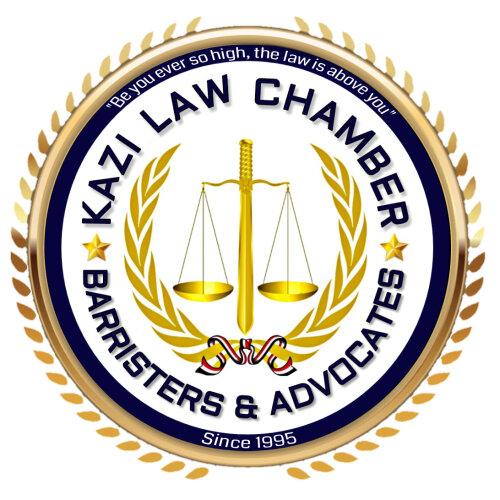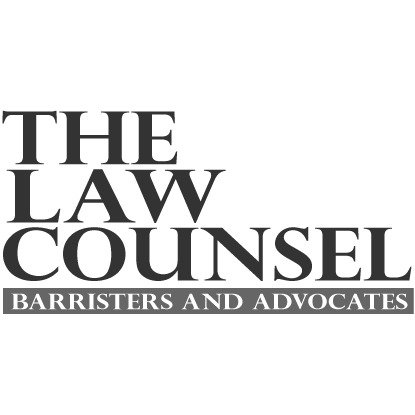Best Art & Cultural Property Law Lawyers in Dhaka
Share your needs with us, get contacted by law firms.
Free. Takes 2 min.
List of the best lawyers in Dhaka, Bangladesh

M. Elahi & Associates - A Registered Law Firm in Bangladesh
30 minutes Free ConsultationAbout Art & Cultural Property Law in Dhaka, Bangladesh
Art & Cultural Property Law in Dhaka, Bangladesh, governs the creation, protection, and distribution of art, as well as the preservation and management of cultural heritage. This area of law involves the regulation of the arts sector, dealing with intellectual property rights, the protection of cultural property, and compliance with international conventions on cultural heritage. In Bangladesh, the legal framework seeks to protect artists and cultural properties while promoting the country's rich cultural heritage.
Why You May Need a Lawyer
There are various situations where an individual or organization in Dhaka may require legal assistance in Art & Cultural Property Law. These include:
- Artists looking to protect their intellectual property rights or resolve disputes over creative ownership.
- Museums or galleries seeking guidance on acquiring, transferring, or loaning art pieces legally.
- Businesses involved in art trading needing advice on compliance with applicable laws and international conventions.
- Conservationists and cultural institutions requiring help in safeguarding archaeological sites and heritage properties.
- Collectors or sellers facing legal challenges related to the provenance or authenticity of art pieces.
Local Laws Overview
In Dhaka, the legal framework governing Art & Cultural Property primarily consists of national laws and international treaties to which Bangladesh is a party. Key aspects include:
- Cultural Heritage Act: This addresses the protection of cultural properties and heritage sites, enforcing penalties against illegal excavation and preservation breaches.
- Copyright Act: Protects the rights of creators in their artistic and literary works, thereby safeguarding against unauthorized use or reproduction.
- The Antiquities Act: Manages the registration, protection, and preservation of antiquities within the country.
- International Conventions: Bangladesh is a signatory to several conventions such as the UNESCO World Heritage Convention, which mandates the protection of world cultural and natural heritage sites.
Frequently Asked Questions
What is classified as cultural property in Bangladesh?
Cultural property in Bangladesh typically includes arts, monuments, manuscripts, archaeological sites, and other items of artistic and historical value that reflect the nation's heritage.
How are intellectual property rights enforced for artists?
Artists can enforce their intellectual property rights through the Copyright Act, which involves registration, licensing, and legal recourse against infringement.
Are there specific laws for art dealers or traders?
Yes, art dealers and traders must comply with laws related to the provenance, export, and import of art pieces, including adhering to criteria set by the Cultural Heritage Act and Anti-Money Laundering regulations.
Can cultural properties be sold or transferred?
Transfers of cultural properties are regulated under national and international laws ensuring their protection and preservation for future generations, often subject to stringent rules and permits.
What role does UNESCO play in Bangladesh's cultural property law?
UNESCO's conventions provide a framework for the protection of cultural heritage in Bangladesh, guiding policy development, heritage site management, and international cooperation.
How can one verify the authenticity of an art piece?
Authenticity can be verified through documentation of provenance, expert evaluations, and certificates of authenticity, possibly requiring legal advice and verification from registered bodies.
What happens if cultural property is damaged?
Damaging cultural property can result in severe penalties under domestic laws. Legal action may involve restitution or repair obligations, highlighting the importance of conservation efforts.
Is export of antiquities allowed?
Exporting antiquities is highly regulated and typically requires permits to ensure compliance with national and international heritage protection laws.
What legal protections exist for new artworks?
New artworks are protected under the Copyright Act once created, providing coverage against unauthorized reproduction, adaptation, distribution, and display.
How are disputes over art ownership resolved?
Art ownership disputes are resolved through legal proceedings, with courts considering evidence such as contracts, provenance records, and expert opinions.
Additional Resources
For further assistance, individuals and organizations can connect with the following resources:
- Department of Archaeology, Bangladesh: The governmental body responsible for cultural property management and policy oversight.
- Bangladesh Copyright Office: Manages copyright registration and enforcement.
- Bangladesh National Museum: Offers insight into the regulations surrounding museum collections and cultural heritage preservation.
- UNESCO Dhaka Office: Provides guidance related to international cultural conventions and heritage site management.
- Legal Aid Services: Various nongovernmental organizations offering legal aid for those involved in cultural property legal issues.
Next Steps
If you require legal assistance in Art & Cultural Property Law, consider taking the following steps:
- Identify the specific legal issue you are experiencing related to art or cultural property.
- Gather all relevant documentation, such as provenance records, contracts, or correspondence related to your case.
- Consult with a lawyer specializing in Art & Cultural Property Law to discuss your case and understand your options.
- Explore legal aid resources if you require financial assistance for legal consultations or proceedings.
- Stay informed about local and international laws affecting art and cultural property to prevent future legal challenges.
Lawzana helps you find the best lawyers and law firms in Dhaka through a curated and pre-screened list of qualified legal professionals. Our platform offers rankings and detailed profiles of attorneys and law firms, allowing you to compare based on practice areas, including Art & Cultural Property Law, experience, and client feedback.
Each profile includes a description of the firm's areas of practice, client reviews, team members and partners, year of establishment, spoken languages, office locations, contact information, social media presence, and any published articles or resources. Most firms on our platform speak English and are experienced in both local and international legal matters.
Get a quote from top-rated law firms in Dhaka, Bangladesh — quickly, securely, and without unnecessary hassle.
Disclaimer:
The information provided on this page is for general informational purposes only and does not constitute legal advice. While we strive to ensure the accuracy and relevance of the content, legal information may change over time, and interpretations of the law can vary. You should always consult with a qualified legal professional for advice specific to your situation.
We disclaim all liability for actions taken or not taken based on the content of this page. If you believe any information is incorrect or outdated, please contact us, and we will review and update it where appropriate.
















